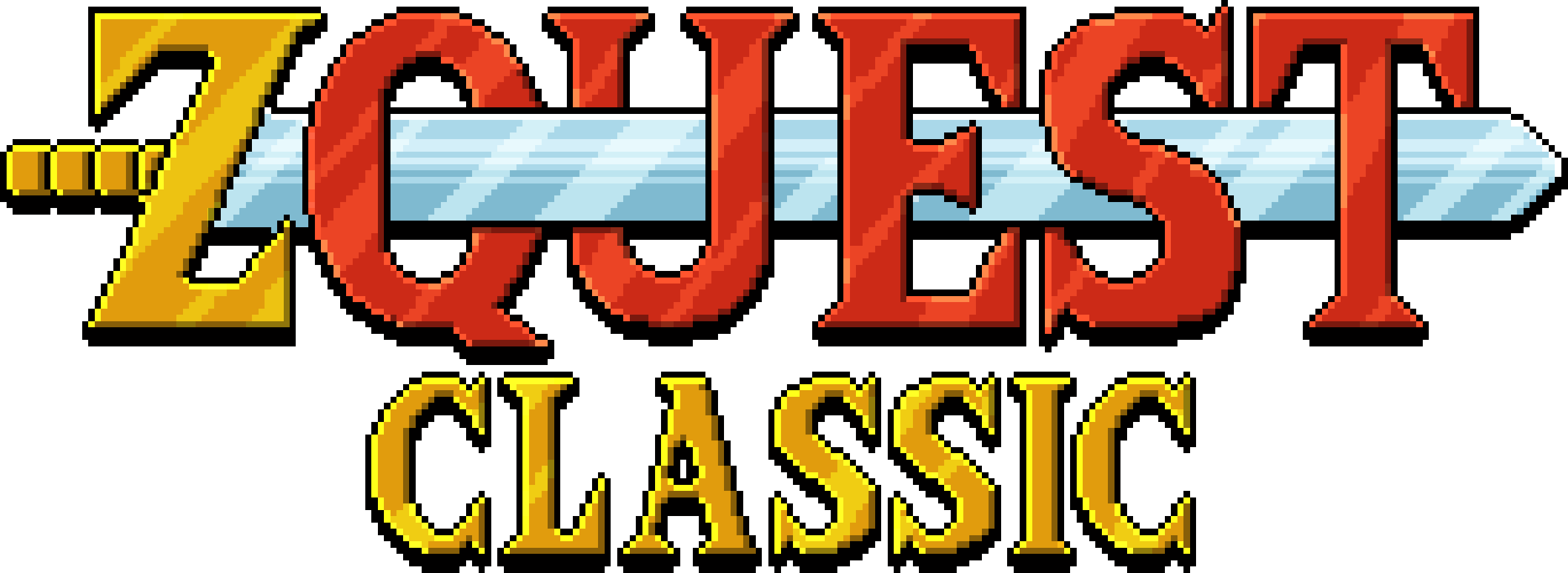Introduction#
ZScript is the scripting language for extending the capabilities of the ZQuest Classic game engine.
Compiling scripts#
The first thing to know about ZScript is how to add scripts to your quest. The details of the language are covered in the following pages, but let’s start here.
Let’s use this example script:
ffc script MyFirstScript
{
void run()
{
Trace("It's dangerous to go alone! Take this.");
}
}Now, let’s add this script to a quest. In the ZQuest Classic editor, open ZScript > Compile Script > Edit to open
the script buffer. Paste the script, press Compile, then press OK. On the right-hand side, select MyFirstScript and
press the << button to assign it to the first FFC “slot”. Finally, press OK.
That’s it! This script can now be assigned to any FFC in the editor.
Tip
The Quick Compile and Smart Compile options are shortcuts to skip the slot-assignment interface. Quick Compile will
update any previously-assigned scripts of the same name for you, and Smart Compile will do that plus assign new scripts
to the next available open slot.
Tip
While you can directly edit the script buffer to write scripts, it is recommended to instead place just this single line in the buffer:
#include "entry.zh"where entry.zh is a text file that contains all the code for your quest. Then, you simply edit that file in any text editor,
and use ZScript > Compile Script > Compile to recompile.
Visual Studio Code#
For an improved programming experience, including error messages, quick access to documentation, and various productivity features, it is recommended to use Visual Studio Code with the ZScript extension.
To set this up:
Install VS Code
Open VS Code and find the Extensions tab on the left, search and install the
zquest-lspextension (or find the install button on the extension page)Open the extension’s settings (click the cog > “Settings”) and set the “Installation Folder” option to be the same folder where ZC is installed
Now ZScript files (.zh, .zs, or .z) will have syntax highlighting, error reporting, and various other productivity
features like documentation tooltips and Go-To-Definition lookups (try hovering or right-clicking on variable/function names).
